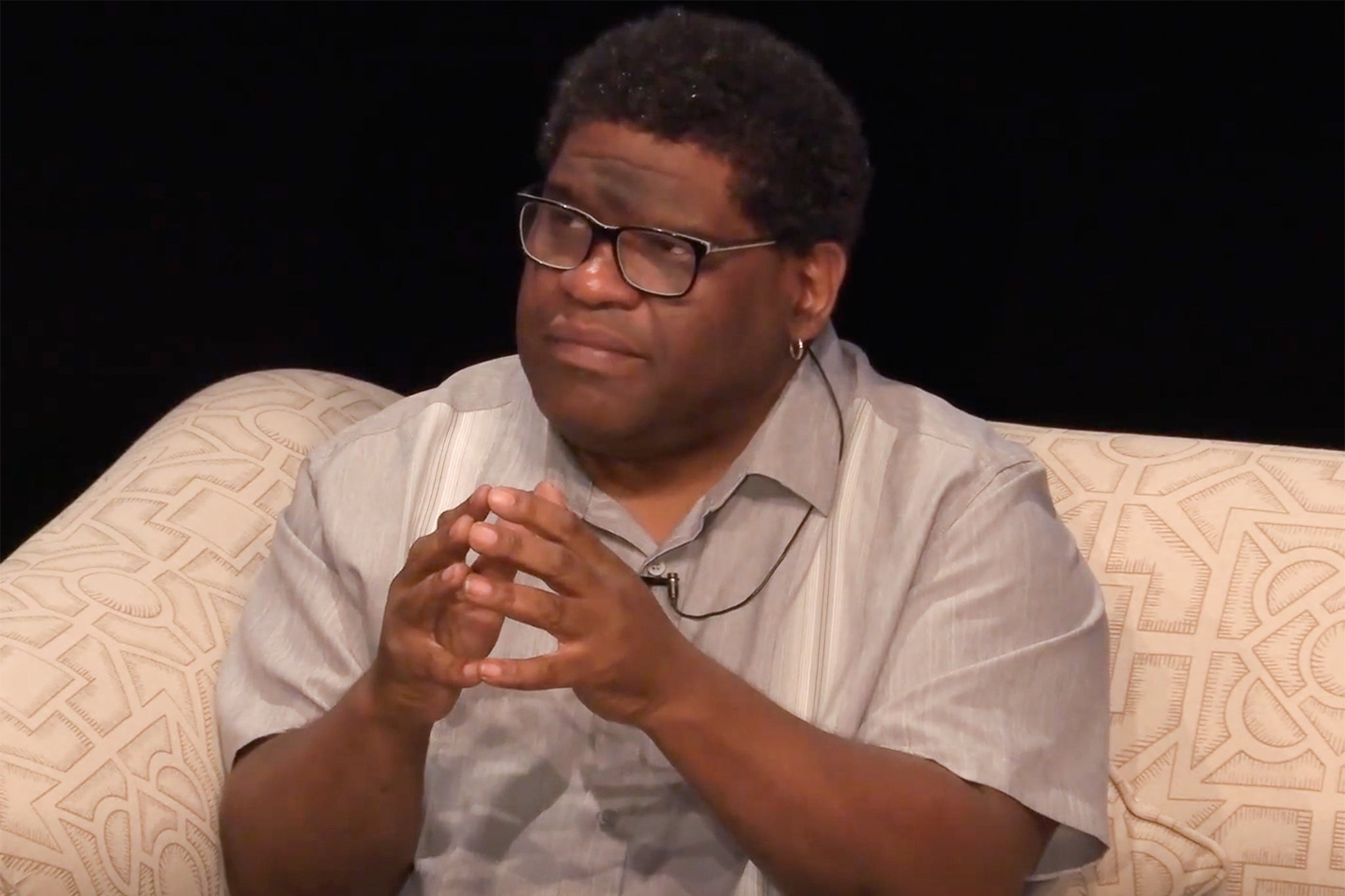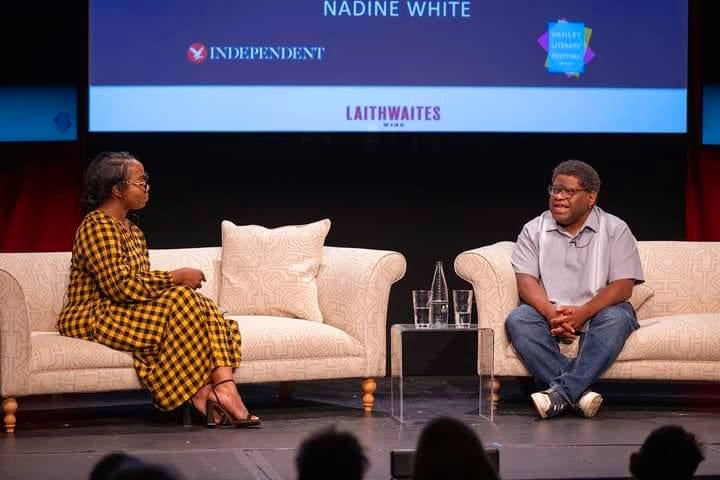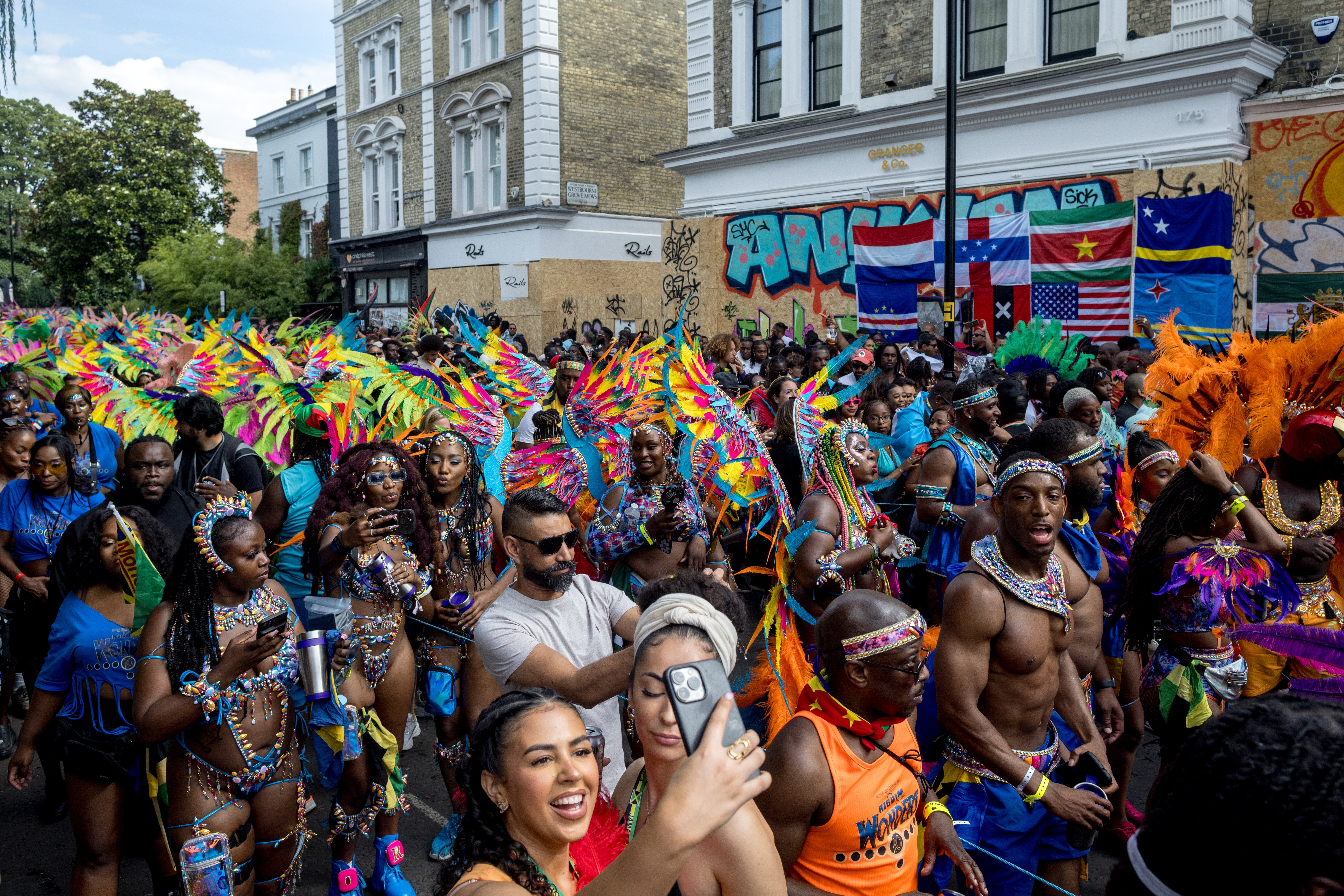‘No, Britain is not best place to be Black’: Journalist Gary Younge on UK’s racism problem
Exclusive: Author was interviewed by The Independent’s race correspondent Nadine White during a talk at Henley Literary Festival

British journalist and author Gary Younge has hit out at Kemi Badenoch’s claim that Britain is the best place to be Black, saying the remarks suggest that ethnic minorities should “be happy with the racism we have”.
The multi-award-winner, 54, a professor of sociology at the University of Manchester, said Ms Badenoch’s comments, made at the Conservative Party conference in Manchester, were “unhelpful” because they effectively ranked racism – while ignoring the fact that it is “not very good anywhere”.
Asked during an interview with race correspondent Nadine White at the Henley Literary Festival – for which The Independent is an exclusive news partner – whether he thought that was right, he said: “Evidently not.
“According to the statistics, you’re more likely to be unemployed, less likely to earn as much, more likely to be stopped, searched, arrested, jailed – you’re going to get a longer sentence, you’re more likely to be in poor housing, you’re more likely to be poor.”
He added: “It’s worth saying it’s not that much fun for a lot of white people either. But if we’re doing pound for pound, then no [it’s not the best country to be Black]; that is the nature of racism.”
Mr Younge, formerly editor-at-large at The Guardian which he joined in 1993, said Ms Badenoch’s comments were a “different way” of saying that Black people “should be happy with the racism we have because there could be more.”
“Who would want to be happy with that? And how do we measure that?” he asked. “I don’t know that any other country has deported its citizens as they did during the Windrush scandal; I haven’t heard those dispatches from Holland, France or Spain.
“At some point, it becomes a weird batch auction, (as if) to say ‘where is racism better?’. Well, it’s not very good anywhere.”
Mr Younge said the rhetoric of “our racism is better than theirs” is a “very, very low standard to go on”. “I don’t see how that helps me or anybody else. I find it an incredibly complacent and unhelpful way to think,” he added.

Mr Younge discussed – among other topics – his latest book Dispatches From The Diaspora: From Nelson Mandela to Black Lives Matter.
Described as a “powerful collection of journalism on race, racism, Black life and death”, Dispatches from The Diaspora is based on the journalist’s articles on those topics.
Published by Faber & Faber, the pieces were written across three decades across various platforms from The Guardian and New Statesman to GQ Magazine, Washington Post and The Nation.
The decision to compile Dispatches From The Diaspora followed George Floyd’s murder in the US in 2020. “Floyd’s murder made me think about kind of the work that I’d done and how it kind of did or didn’t relate to that moment,” he said.
“I thought we’re in a weird time where it’s all available or most of what’s in the book is kind of available on the Internet – but then you will have to look for it… and there was some value in having it in one place.
“So I started thinking about collecting the works. There are trends and continuity and there are things that are happening now... history doesn’t repeat itself, but sometimes it does rhyme.”
He said he wanted to demonstrate that racism didn’t start in 2020. “Once I had the idea, that was where I thought, there is more value in this than I had originally imagined,” he said.
From covering the end of apartheid in South Africa during the 1990s to reporting on the ground in New Orleans following Hurricane Katrina in 2005, the inception of the Black Lives Matter movement to the impact of Covid on Black communities, Younge’s dispatches interrogate political and social assumptions around Blackness.
The body of work spans the Caribbean, Africa, Europe and Britain, translating key moments into tangible words and further chronicling them onto the pages of history.

He highlights the pioneers behind Notting Hill Carnival, including Claudia Jones and Rhaune Laslett, examining the annual event’s inception and attitudes around it back in 1991, when it was greeted with suspicion.
Talking about how conversations surrounding the festival still happen in 2023, he said: “As in so many things, we’re not where we were. We have more Black campaigns, we have more Black journalists, a more robust section of civil society that is Black than we did 20-odd years ago. But we’re nowhere near where we need to be.”
Indeed, more Black journalists are working in the UK media industry now than when Mr Younge started out in 1992. However, diversity is poor with reporters from this group only comprising 0.2 per cent of an industry that is at least 94 per cent white.
Where Mr Younge, a prolific writer and thinker on an array of topics including race, recalls being warned off of focusing on this area as a specialism during his early career days by “well-intended” white colleagues, what advice does he have for up-and-coming Black newspeople?
“I would say to young journalists: if you’re into sport, write about sport, If you’re into fashion, write about fashion. If you’re into race, write about race. Because you know what? Whatever you do, you’re still going to be Black. Your racial identity will inform your work – and the things that you are most passionate about, are the things that you write about well.”





Bookmark popover
Removed from bookmarks